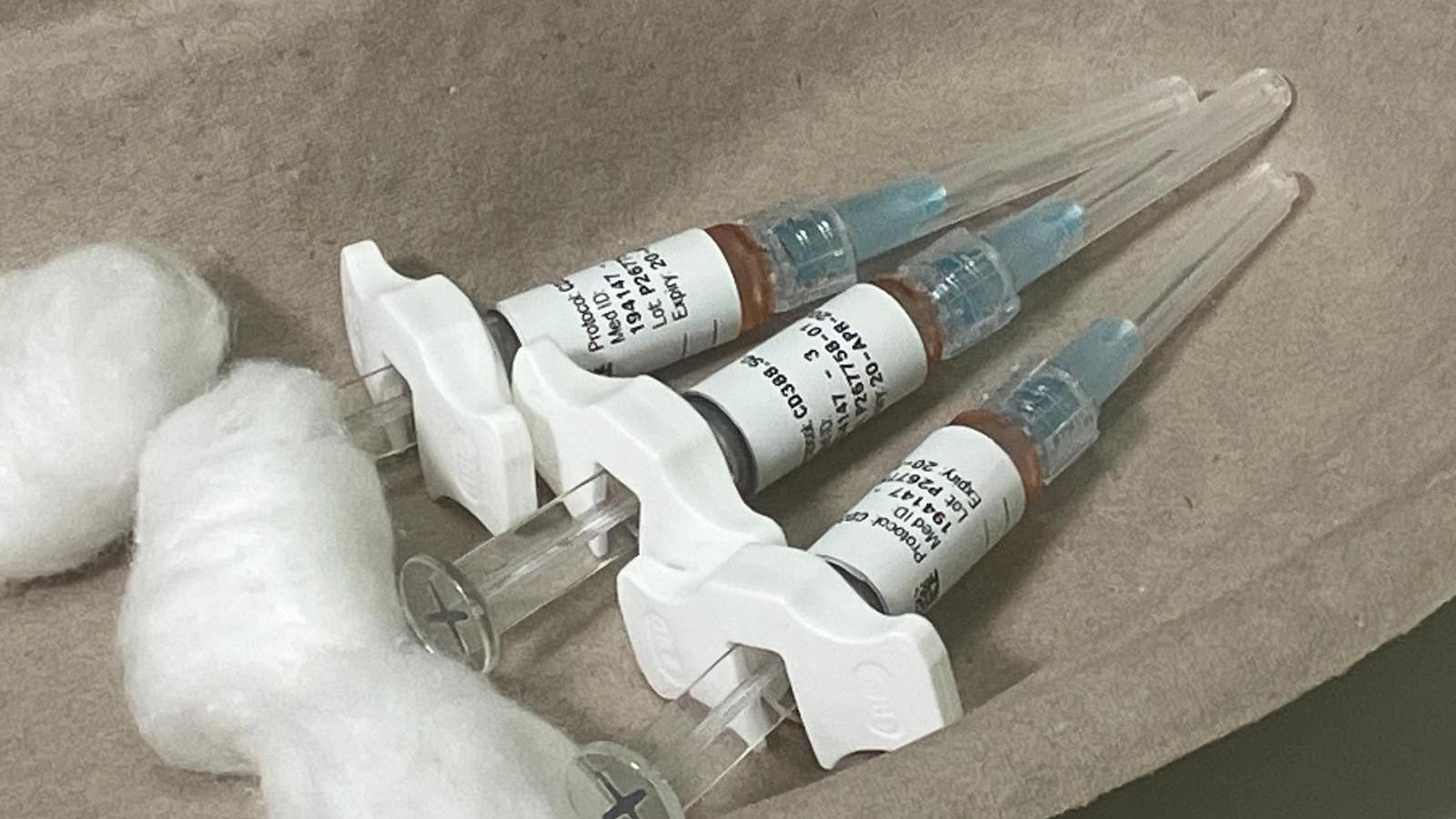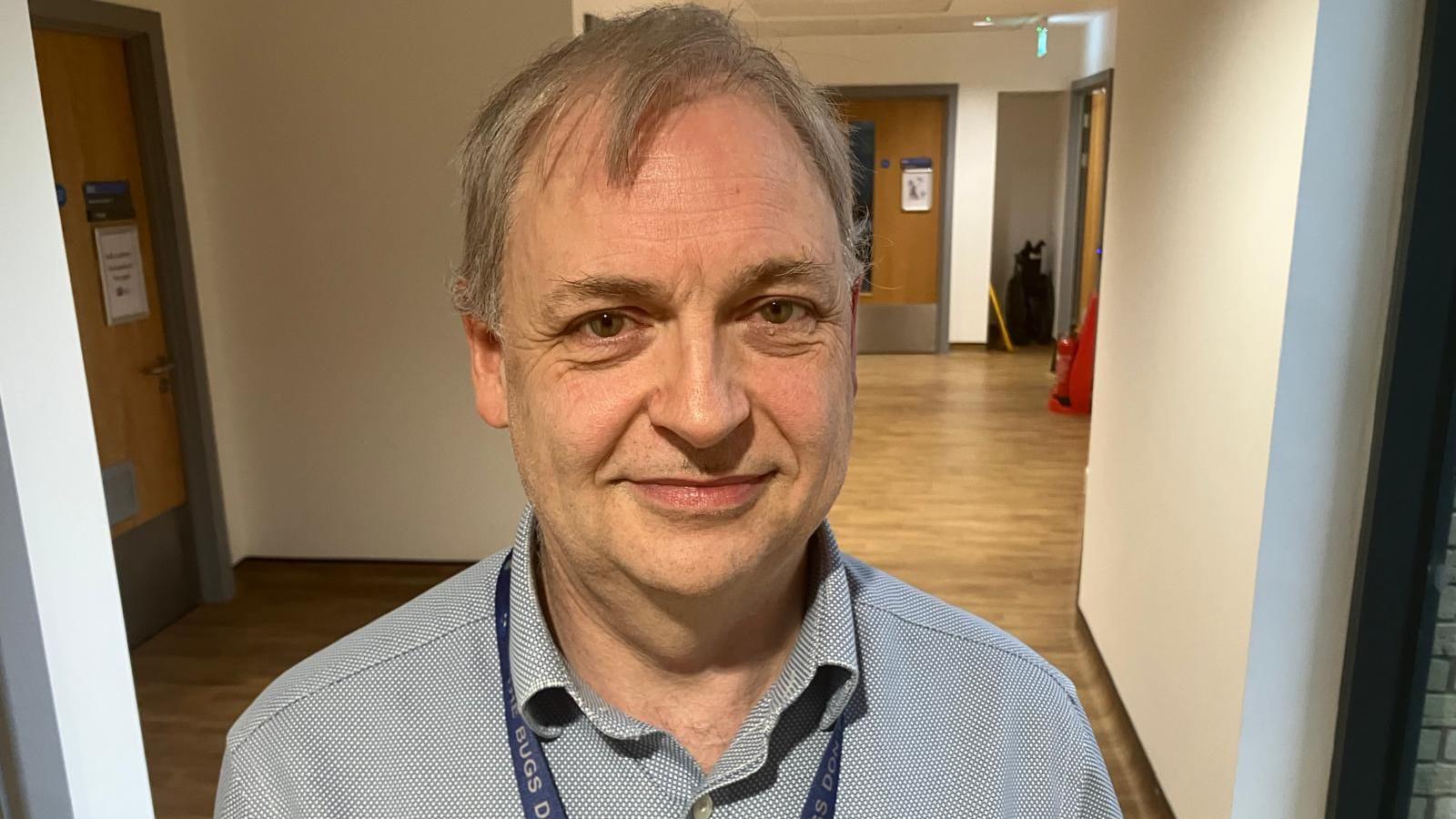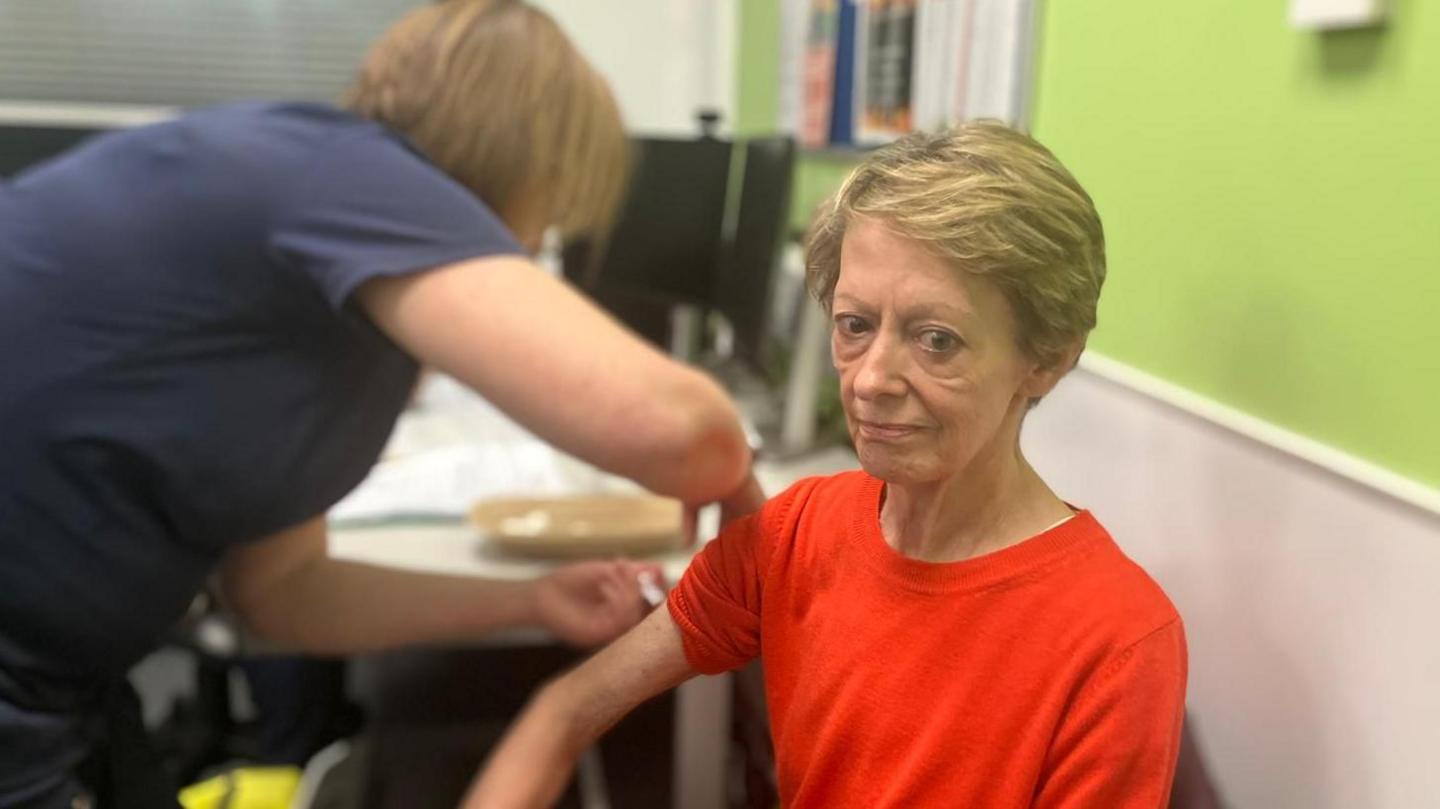New flu treatment could protect vulnerable patients

During the trial the drug will be given in three doses but in the future this could be reduced to one
- Published
A new treatment that could give vulnerable patients extra protection against the flu virus is being offered in Nottingham as part of an international study testing its effectiveness.
Flu is a serious problem, not only for those with existing medical conditions but also for medical centres which come under pressure when dealing with numerous cases.
The new medication uses an existing anti-viral drug and combines it with an antibody which allows it to stay in the body for a number of weeks.
Transplant patient Susanna Konowalik said: "If this works it will be fantastic because it means extra protection for people whose lives could be severely at risk if they were to get normal flu."

Prof David Turner said the new treatment could be given alongside the flu vaccine
The medication is delivered by injection to people at higher risk of developing the illness.
The NHS Cripps Health Centre at the University of Nottingham is one of 30 centres in the UK aiming to recruit a total of 1,000 volunteers.
Preliminary results from the Anchor Study, which is also being carried out on 5,000 patients in the US, are expected at the end of 2026.
The treatment is made up of two parts - zanamivir, a medication that fights influenza which has been approved in the UK for years, and a human immunoglobin antibody, which is a protein from humans that helps the body fight off infection.
Prof David Turner, an infections specialist at the University of Nottingham, is leading the Nottingham part of the trial.
"What we really want to do is prevent people from becoming unwell with flu," he said.
"Obviously the flu vaccine is really important but they don't always work for everyone - some people with immune problems don't respond to the vaccine.
"This new medication, we are hopeful it will prevent the flu because it works directly on the virus and prevents it from entering our cells.
"It doesn't require our immune system but will be given alongside the vaccine.
"If we can show this works, it may well prevent hospitalisations with serious illness, ease pressure on NHS hospitals and even save lives."

Susanna Konowalik said any infection risked the rejection of her transplanted organs
Some people who get flu develop no symptoms at all, while others get a sudden fever, body aches and exhaustion - but the virus can be deadly in older and more vulnerable groups, including people with underlying health problems.
This year's flu season has begun early. Last year, nearly 8,000 people died from flu. In the UK and in the 2022-23 flu season, there were nearly 16,000 deaths.
The NHS is already anticipating a tough winter with predictions the 2025-26 flu season could be the worst for 10 years.
Susanna Konowalik has received a multi-organ transplant and said she was keen to help the NHS in the tests.
"If I was to get any sort of infection, it could impact on my transplanted organs and obviously I cannot risk that because any sort of rejection, I don't just lose one organ, I lose them all," she told the BBC.
"If this works it will be fantastic because it means extra protection for people whose lives could be severely at risk if they were to get a normal flu.
"It's been explained to me that it won't affect my immune system but will give me extra protection."
Half of the volunteers are given injections with the new treatment while the other half receive a placebo, which are shots that look and feel like real medicine but do not contain any active ingredients.
Neither the researchers nor the participants will know who has been given what until the end of study.
This will allow the team to judge the effectiveness of the drug without any other influences.
Get in touch
Tell us which stories we should cover in Nottingham
Follow BBC Nottingham on Facebook, external, on X, external, or on Instagram, external. Send your story ideas to eastmidsnews@bbc.co.uk, external or via WhatsApp, external on 0808 100 2210.
Related topics
- Published4 days ago

- Published30 October
